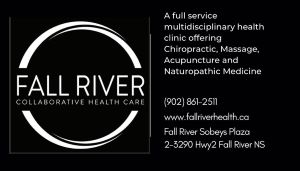EAST HANTS: Nova Scotians with cognitive impairments like significant memory loss or brain injury want more flexibility and control over how care is provided in their homes. That is why government is expanding a program to help more people get the care they need at home.
Government is doubling the amount available through the Supportive Care Program from $500 to $1,000 per month, based on assessed need and expanding eligibility to include those with acquired brain injuries.
“We are giving people more flexibility to choose how care is provided in their homes and supporting people with acquired brain injuries to live full and independent lives,” said Health and Wellness Minister Randy Delorey. “These changes will help more Nova Scotians who want to stay at home get the care and support they need.”
The Supportive Care Program provides funding to eligible Nova Scotians with cognitive impairments, including difficulty thinking, concentrating and remembering to hire services like personal care, respite, meal preparation and housekeeping. The care could come from private agencies or local community supports.
Changes take effect July 1. More information about this program is available by calling 1-800-225-7225.
Quote:
“Brain injury tends to be a sudden event that changes lives in an instant, but recovery and return to life, work and community is possible with ongoing meaningful support. As the only organized voice for some 70,000 Nova Scotians affected by brain injury, we hear from families every day struggling to manage support for their loved ones at home. This expansion will help hundreds of families with more options and flexibility and improve the lives of our brain injury community.”
– Leona Burkey, executive director, Brain Injury Association of Nova Scotia
Quick Facts:
— eligibility criteria include being 65 years or older or, if under 65, having a diagnosis of dementia or an acquired brain injury that affects daily functioning, needing at least 25 hours per month of care support and having a substitute decision maker
— an acquired brain injury is temporary or permanent brain damage or dysfunction caused by trauma from an external force, or by a medical issue or disease
— 485 current Supportive Care Program clients now have expanded options in how their care is provided. An additional 1,015 Nova Scotians are eligible and could benefit from the expansion
— the Supportive Care Program is one of several home-based care options (in addition to home care and self-managed care) that eligible Nova Scotians can choose based on their assessed need and preference
— the $1.6 million in funding for this initiative comes from the Canada-Nova Scotia Home and Community Care and Mental Health and Addiction Services Funding Agreement
— June is Brain Injury Awareness Month in Nova Scotia and across Canada
Additional Resources:
For more information about the Supportive Care Program, visit: https://novascotia.ca/dhw/ccs/supportive-care.asp
For more information about the Canada-Nova Scotia Home and Community Care and Mental Health and Addictions Services Funding Agreement, visit: https://www.canada.ca/en/health-canada/corporate/transparency/health-agreements/shared-health-priorities/nova-scotia.html
Brain Injury Association of Nova Scotia: https://braininjuryns.com/































